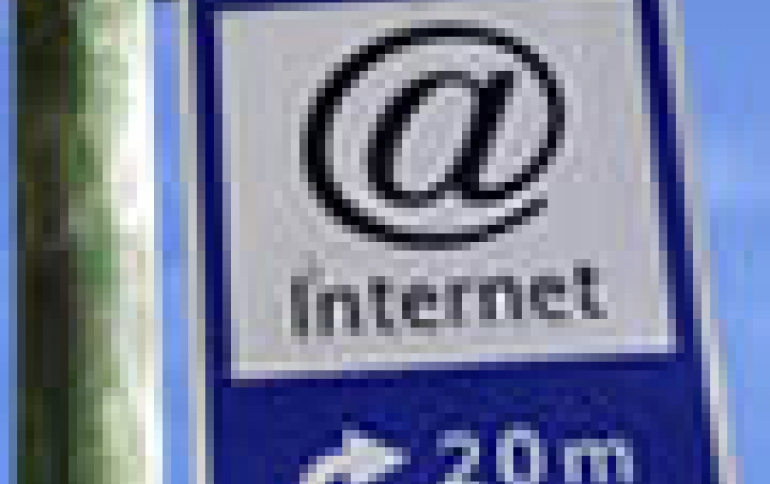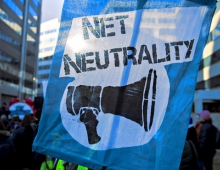
Search Engines And ISPs Will Be Required To Block Pirate Sites, New Bill Says
Members of the U.S. House of Representatives today announced they've jointly introduced a new bill intended to make allegedly copyright-infringing Web sites virtually disappear from the Internet.
The bill is titled "Stop Online Piracy Act" (PDF) and would give the U.S. Attorney General power to order search engines and Internet service providers to block sites with pirated content. It also gives copyright holders the ability to issue notifications to payment providers like Paypal when a site is selling copyrighted material. They will also be able to sent notifications to companies that specialize in Internet advertising, all without the assistance of a court. Finally, Web sites that make money off selling counterfeit pharmaceutical drugs will be facing much harsher penalties with new rules laid out in the bill.
A hearing on the bill has been scheduled for November 16.
The Recording Industry Association of America (RIAA) welcomed the new bill.
"This legislation is a first step towards a brighter day when these rogue offshore websites can no longer duck accountability under U.S. laws, all the while providing a critical boost to the marketplace for legal digital music services. The Smith bill sensibly requires relevant parties to work together to address the collateral damage caused to everyone involved in legitimate online commerce and appropriately complements other voluntary efforts already underway. Notably, the bill also allows reasonable flexibility for ISPs in determining the most appropriate technological manner for blocking illegal sites and provides ample legal safeguards for sites accused of infringement," said Cary Sherman, Chairman and CEO, RIAA.
On the other hand, the Electronic Frontier Foundation (EFF) said that the legislation "would authorize massive interference with the Internet, all in the name of a fruitless quest to stamp out all infringement online."
"The Stop Online Piracy Act, or "SOPA," that would not only sabotage the domain name system but would also threaten to effectively eliminate the DMCA safe harbors that, while imperfect, have spurred much economic growth and online creativity," EFF said in a statement.
"...it's okay to interfere with the Internet, even effectively blacklisting entire domains, as long as you do it in the name of IP enforcement. Of course blacklisting entire domains can mean turning off thousands of underlying websites that may have done nothing wrong," EFF added.
Under this bill, service providers (including hosting services) would be also under new pressure to monitor and police their users' activities. Websites that simply don't do enough to police infringement are now under threat, even though the DMCA expressly does not require affirmative policing.
"This would be a good time to contact your Congressional representative and tell them to oppose this bill!," the EFF said.
An earlier version of the bill (PROTECT IP Act), which a Senate committee approved in May, was broadly supported by film and music industry companies.
The Consumer Electronics Association (CEA) is also opposing the new legislation. CEA is bringing 15 venture capitalists specializing in Internet innovation to Washington on October 27, to tell members of Congress first-hand how the PROTECT IP Act would "undermine the vital web economy."
"The PROTECT IP Act would kill jobs and innovation and slow down one of the few bright spots of economy," said CEA President and CEO Gary Shapiro. "We hope these entrepreneurs' unique views of how to stimulate innovation in a downtrodden economy will resonate with Congress and lead to meaningful changes in the bill."
The PROTECT IP Act, formally known as the Preventing Real Online Threats to Economic Creativity and Theft of Intellectual Property Act, would allow copyright owners simply to accuse a website of infringement, which could lead to that site being shut down by court order and wiped clean from the Internet. Any website would be subject to liability, and non-infringing sites could be inadvertently shut down under the proposal.
"The notoriously litigious content industry could simply accuse a site that it is selling a product that could 'enable or facilitate' a copyright infringement, thereby allowing accusations to shut down sites vital to the Internet economy," Shapiro concluded. "This scenario is unacceptable and could lead to mass shut downs of websites and Internet-enabled services."
A hearing on the bill has been scheduled for November 16.
The Recording Industry Association of America (RIAA) welcomed the new bill.
"This legislation is a first step towards a brighter day when these rogue offshore websites can no longer duck accountability under U.S. laws, all the while providing a critical boost to the marketplace for legal digital music services. The Smith bill sensibly requires relevant parties to work together to address the collateral damage caused to everyone involved in legitimate online commerce and appropriately complements other voluntary efforts already underway. Notably, the bill also allows reasonable flexibility for ISPs in determining the most appropriate technological manner for blocking illegal sites and provides ample legal safeguards for sites accused of infringement," said Cary Sherman, Chairman and CEO, RIAA.
On the other hand, the Electronic Frontier Foundation (EFF) said that the legislation "would authorize massive interference with the Internet, all in the name of a fruitless quest to stamp out all infringement online."
"The Stop Online Piracy Act, or "SOPA," that would not only sabotage the domain name system but would also threaten to effectively eliminate the DMCA safe harbors that, while imperfect, have spurred much economic growth and online creativity," EFF said in a statement.
"...it's okay to interfere with the Internet, even effectively blacklisting entire domains, as long as you do it in the name of IP enforcement. Of course blacklisting entire domains can mean turning off thousands of underlying websites that may have done nothing wrong," EFF added.
Under this bill, service providers (including hosting services) would be also under new pressure to monitor and police their users' activities. Websites that simply don't do enough to police infringement are now under threat, even though the DMCA expressly does not require affirmative policing.
"This would be a good time to contact your Congressional representative and tell them to oppose this bill!," the EFF said.
An earlier version of the bill (PROTECT IP Act), which a Senate committee approved in May, was broadly supported by film and music industry companies.
The Consumer Electronics Association (CEA) is also opposing the new legislation. CEA is bringing 15 venture capitalists specializing in Internet innovation to Washington on October 27, to tell members of Congress first-hand how the PROTECT IP Act would "undermine the vital web economy."
"The PROTECT IP Act would kill jobs and innovation and slow down one of the few bright spots of economy," said CEA President and CEO Gary Shapiro. "We hope these entrepreneurs' unique views of how to stimulate innovation in a downtrodden economy will resonate with Congress and lead to meaningful changes in the bill."
The PROTECT IP Act, formally known as the Preventing Real Online Threats to Economic Creativity and Theft of Intellectual Property Act, would allow copyright owners simply to accuse a website of infringement, which could lead to that site being shut down by court order and wiped clean from the Internet. Any website would be subject to liability, and non-infringing sites could be inadvertently shut down under the proposal.
"The notoriously litigious content industry could simply accuse a site that it is selling a product that could 'enable or facilitate' a copyright infringement, thereby allowing accusations to shut down sites vital to the Internet economy," Shapiro concluded. "This scenario is unacceptable and could lead to mass shut downs of websites and Internet-enabled services."





















